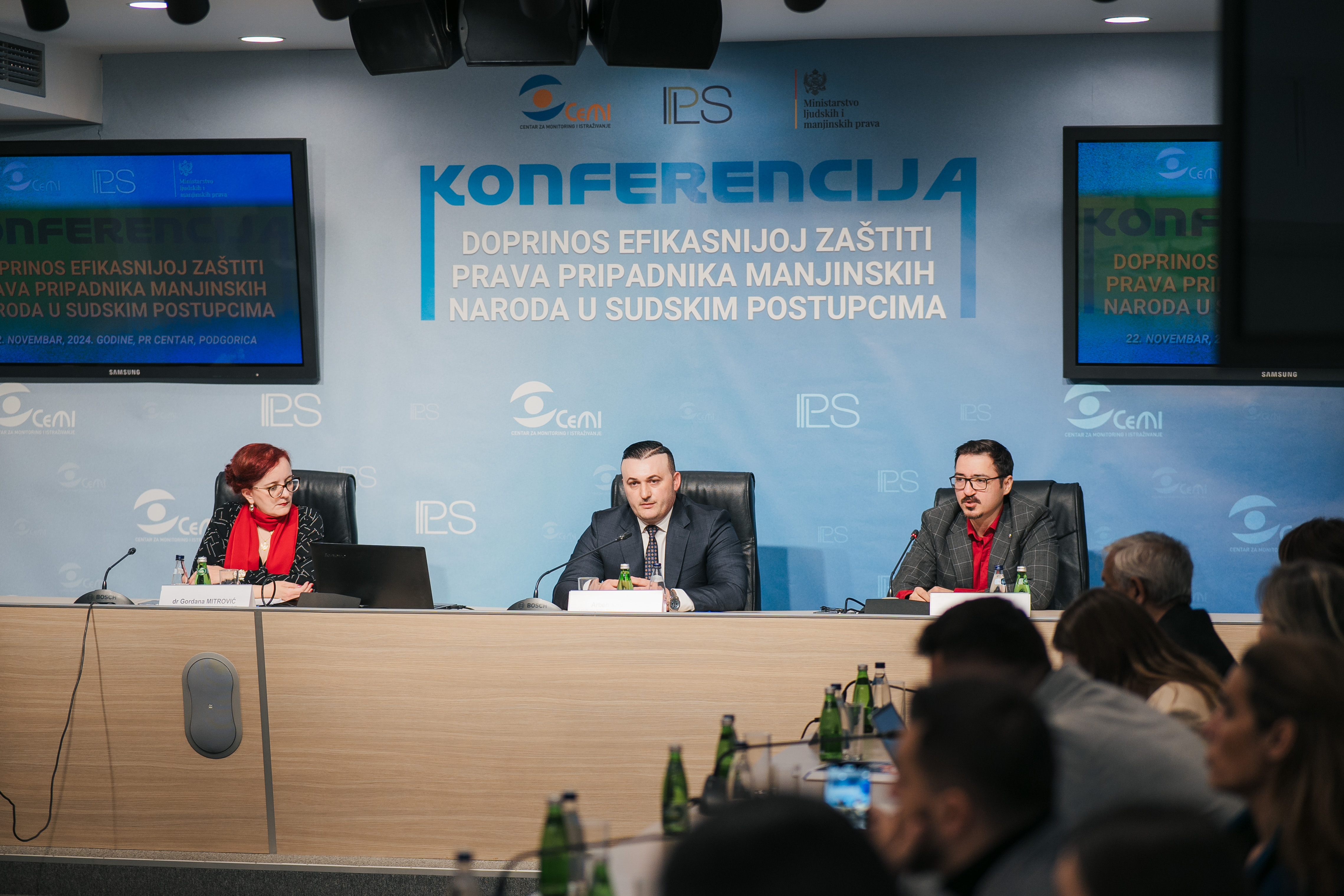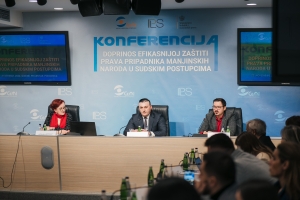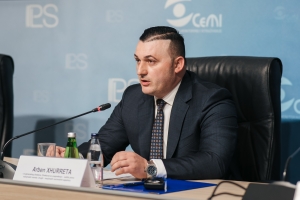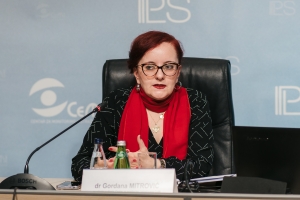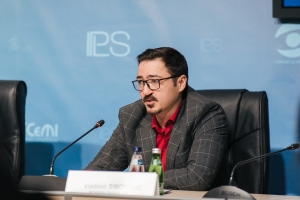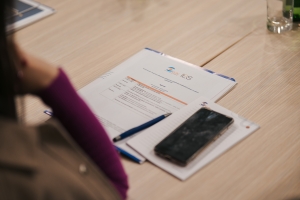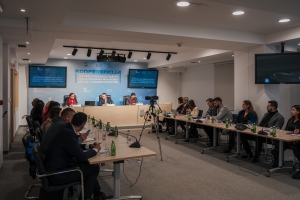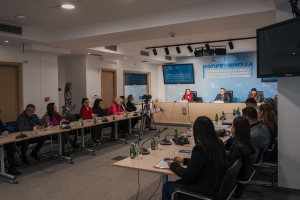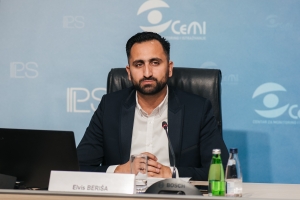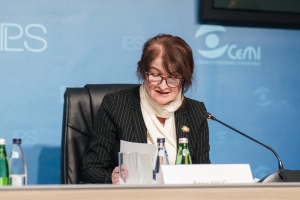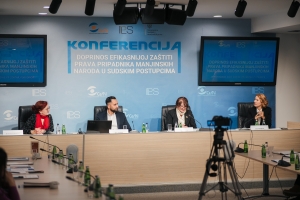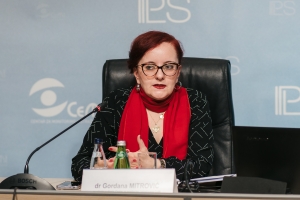Members of the Roma and Egyptian communities lack sufficient awareness or understanding of their legal rights in court. As a result, there is an urgent need for further education and training for all participants in criminal proceedings. This would ensure that both defendants and victims are fully informed and able to effectively exercise their rights, particularly the right to free legal aid.
This was the key takeaway from the conference "Contributing to More Effective Protection of the Rights of Minorities in Judicial Proceedings," which was part of the project "Contributing to the Protection of the Rights of Minorities in Judicial Proceedings." The project is being implemented by the Center for Monitoring and Research (CeMI) and the Institute for Legal Studies, with financial support from the Ministry of Human and Minority Rights.
Vladimir Simonović, Head of the Legal Department at CeMI, emphasized that Montenegro bears a responsibility to ensure comprehensive protection against discrimination and full respect for the rights of minorities
"This is not just a legal obligation, but a moral one. It's not merely about aligning with standards; it's about a commitment to the core values of justice and equality", stated Simonović.
Regrettably, reports from the European Commission and domestic institutions reveal, as Simonović pointed out, numerous challenges that must be addressed. Complaints regarding the functioning of the judiciary are common, and the rising number of cases involving discrimination and hate speech highlights the urgent need to reinforce both the institutional and legal framework.
"Protecting the rights of minorities is a collective responsibility. Our aim is to identify solutions and work together toward creating a judicial system that is fair, transparent, and accessible to all, regardless of ethnic or national background", Simonović emphasized.
Arben Xhurreta, Acting Director of the Directorate for the Improvement and Protection of the Rights of Minorities and Other Minority National Communities, announced that his directorate has allocated €450,000 this year to support NGO projects and programs focused on minority rights.
Funds have been allocated for 24 non-governmental organizations. The protection of minority rights is guaranteed by the Constitution and laws, along with the strengthening of existing institutions, the adoption of strategic documents, and their implementation. These are strong guarantees and commitments by Montenegro to address minority issues with full attention and dedication. Human rights and freedoms are guaranteed by the Constitution, numerous international treaties, and national regulations”, said Xhurreta.
As he believes, for Montenegro, the protection of human rights for all 620,000 citizens is an valuable legacy for future generations.
“On its European path, Montenegro is determined to incorporate European values into its society and to become an example to other European countries, showing how all its citizens live in harmony, mutual respect, and tolerance”, emphasized Xhurreta.
Gordana Mitrović, a trial monitor at CeMI, presented the Report on trial monitoring. The research was conducted by observing hearings in the Basic Court in Podgorica and reviewing case files from the basic courts in Bar, Bijelo Polje, Nikšić and Podgorica.
“Our research covered 68 hearings in 61 cases, and we reviewed 95 legally concluded cases. In total, 156 cases were analyzed, 103 of which were before the Basic Court in Podgorica”, said Mitrović.
When it comes to detention, she emphasized the need to carefully consider the circumstances under which it can be ordered and explore all possibilities for replacing detention with less severe measures, which would, among other things, ease the capacity of detention facilities.
She pointed out that legal regulations could be improved by further aligning them with international standards and that greater attention should be paid to respecting procedural deadlines, especially in detention cases. She also noticed a large number of trial postponements, which are mostly not the fault of the courts. Furthermore, she identified a major issue in the general population’s lack of knowledge about their rights, particularly among minority groups. The Law on Free Legal Aid has brought some improvements, but this law and the right to free legal aid have not been sufficiently promoted. She believes that further distribution of materials on this topic would significantly improve the situation.
“A significant improvement could be achieved by building a modern information system in the judiciary, similar to that of Estonia, through which communication between the court and participants in the process would be conducted electronically, which would reduce the number of trial delays due to non-attendance of participants”, said Mitrović.
Mitrović also suggested further educating judges and all participants in criminal proceedings regarding the European Convention on Human Rights and the practices of the European Court of Human Rights. She emphasized that rights must be explained to defendants, especially those less educated or those who do not fully understand the language due to their disadvantaged economic status.
She concluded that the difficult socio-economic position of the Roma and Egyptian (RE) population often affects how their rights are realized. Many of them request to start serving their sentence before the verdict becomes final because they can work while serving the sentence and earn income for their basic needs.
The President of the Basic Court in Nikšić, Sanja Nikić, acknowledged that the courts are aware of most of the problems and irregularities identified by the analysis. “We try to address them, but as you know, there is a shortage of judges, and those who work are overloaded, rushing to finish cases. We try to avoid mistakes, but we may sometimes fail to fully explain the rights to the accused and victims, which could lead to them not exercising their rights correctly”, said Nikić.
According to her, in 2023, there were 47 requests for free legal aid at the Basic Court in Nikšić, of which 9 were approved for the RE community. In 2024, so far, there have been 45 requests, and three were granted to members of the RE community.
Elvis Beriša, the executive director of the NGO “Walk with us – Phiren Amenca” believes that statistical analysis and monitoring of minority cases within the judicial system could be an effective mechanism to identify shortcomings and necessary improvements in the legal system.
“Members of the RE population often do not understand their rights, even though they are informed by judges and prosecutors. They frequently are not able to choose or hire a defender, and they are not fully aware of their entitlement to free legal aid”, said Beriša.
He believes that more education is needed for judicial workers on the specificities related to minority communities, especially the Roma community. Strengthening cooperation with nongovernmental organizations that work with minority groups is also necessary because they best understand the needs and specifics of these communities, including their language and culture.
Dina Knežević, the chief advisor at the Ombudsman for Human Rights and Freedoms, noted that members of the Roma community still live in segregated settlements, face a lack of education, and have fewer employment opportunities, which reflects on their access to justice and anti-discrimination rights.
“It is absolutely unrealistic to expect someone who struggles to understand the majority language to seek free legal aid if they have not fully understood their rights as presented in court”, said Knežević.
She also expressed interest in knowing which criminal offenses specifically affect minority community members, either as victims or defendants. She was particularly concerned about violence within the Roma community, especially against Roma women.
She explained that the RE community is often targeted by hate speech, which is not classified as a criminal offense but is regulated by the Anti-Discrimination Law. According to the Ombudsman’s data, no legal proceedings have been initiated for hate speech offenses, although hate crimes, which include any criminal offense where the victim or property is targeted due to minority status, are recognized. According to the Judicial Council, in the past year, and in 2022, only two cases applied the provision from the Criminal Code (Article 42a), which considers the commission of a crime as an aggravating factor if motivated by hate.
